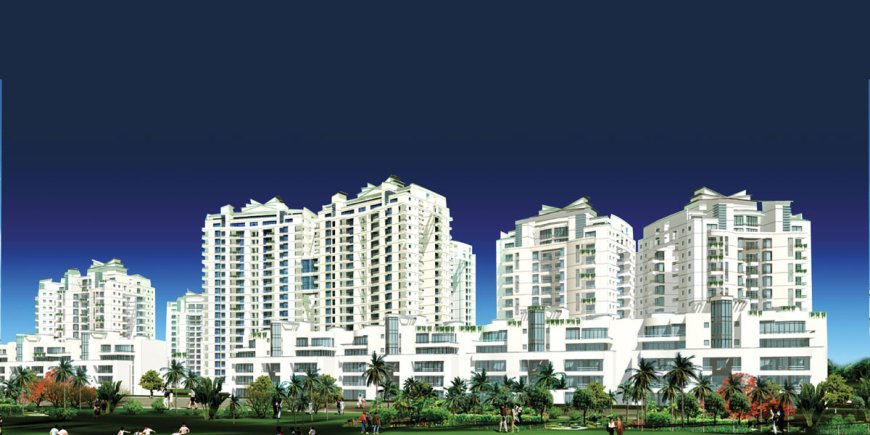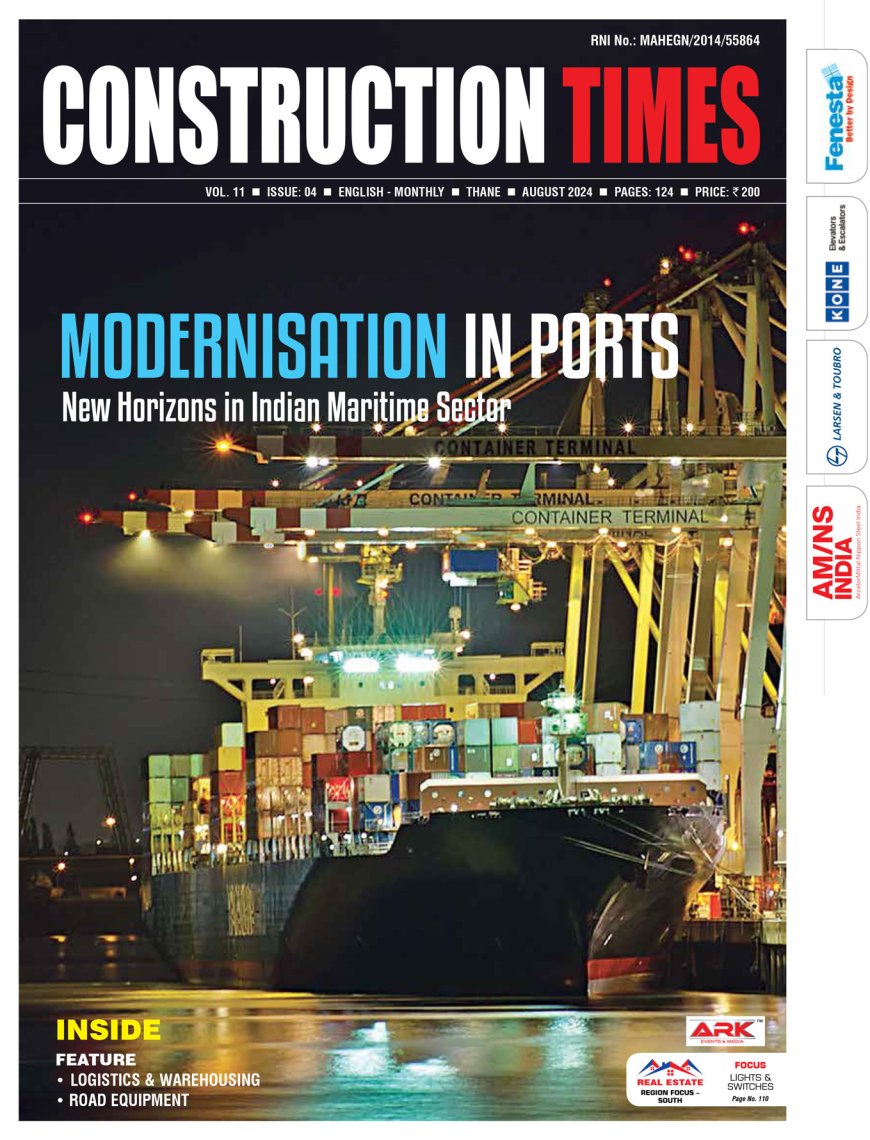Flourishing South

A surge in commercialization and infrastructure developments is driving the growth of real estate market in southern India. Construction Times explores the emerging trends and scenario…
Real estate market in Southern part of India has shown some remarkable growth trend in the past year. Apart from the traditional markets of Chennai, Bengaluru, and Hyderabad, markets such as Kochi, Thiruvananthapuram, Coimbatore etc are making a mark and are fast emerging as promising markets.
Market dynamics

The real estate market in southern India is gaining more momentum compared to the other parts of the country in the recent times. There are many reasons behind this, ranging from infrastructure developments, improved connectivity, growing tier 2 and tier 3 cities, affordability and more. The growing trend is visible in commercial as well as residential markets. According to ANAROCK Research, in the first half of 2024 (H1 2024), Bengaluru, Chennai, and Hyderabad saw a combined launch of around 81,700 new residential units. Sales during this period were strong as well, with roughly 79,400 units finding buyers. Talking about the residential market, Anuj Puri, Chairman, ANAROCK Group says, “We’re seeing a rise in demand for residential properties, particularly in the mid-range (Rs 40 lakh-80 lakh) in Chennai and high-end segment (Rs 80 lakh-1.5 crore) in Bengaluru and Hyderabad.” This is driven by the growing young professional population in these cities, particularly those employed in the booming IT-ITeS sector. “Interestingly, there’s also a rise in demand for luxury properties in Bengaluru and Hyderabad, catering to affluent buyers seeking upgraded lifestyles,” he adds.

According to him, the IT-ITeS sector and strong startup ecosystems in these cities are driving significant demand for commercial office space. “This is particularly evident in Bengaluru and Hyderabad, which have seen a surge in new office space development,” Puri highlights. A growing interest in co-working spaces, particularly from startups and small businesses, offering flexibility and cost-effective solutions, is also pushing the growth of commercial segment in these cities.
The current real estate market scenario exudes optimism, especially in the high growth urban centres like Bengaluru and its neighboring towns. Maninder Chhabra, Director of Sales, Marketing, and CRM, Century Real Estate Holdings, elaborates on the market dynamics of Bengaluru and its extended suburbs, “North Bengaluru is emerging as the next big hub for real estate in the city, fueled by substantial infrastructure developments and investments. Projects like the Bangalore Suburban Railway, which will enhance connectivity between the city and suburbs, and the Namma Metro Phase 2B line, extending 38 km from Nagawara to Kempegowda International Airport, which is going to be completed by 2025, can significantly improve accessibility. These developments are driving both commercial and residential real estate growth, solidifying North Bengaluru's position as a key area for future expansion.”
According to a CBRE report, Hyderabad accounts for 12% of the total housing stock among the top seven cities, which include Delhi-NCR, Mumbai, Bengaluru, Chennai, Pune, and Kolkata. The city has experienced a surge in residential development in recent years, reflecting its burgeoning economic vitality and increasing desirability as a place to live. Since the COVID-19 pandemic, the city has achieved unprecedented growth in new residential launches, culminating in an impressive residential stock of 4.4 lakh apartment units by June 2024. This expansion has been accompanied by robust demand for housing across all segments, with approximately 1 lakh units sold over the past ten quarters.
Affordable & luxury markets

According to ANAROCK Research, the luxury segment is experiencing a significant growth spurt in the southern cities. This is driven by several factors, including: increased disposable incomes, growing pool of High-Net-Worth Individuals (HNIs) seeking bigger and better homes and lucrative investment option, offering potential capital appreciation and rental income. While there’s a clear need for affordable housing, especially for the burgeoning middle class, this segment has witnessed stagnant or even declining growth in recent quarters, according to Puri. “Escalating construction costs and land prices are squeezing profit margins for developers, making it challenging to build large-scale affordable projects,” he points out.
According to Chhabra, luxury real estate is experiencing significant interest, driven by the overall increase in wealth that aligns with economic growth. “We observed that the luxury buyers are willing to pay a premium, if offered the right product at the right location. We are also foreseeing a spike in the overall Bengaluru real estate pricing strata as the city has been one of the most reasonable markets among the metros on that aspect,” he adds. On affordable segment, Chhabra is of the view, “The affordable real estate market in the southern region is also growing rapidly due to a high demand for cost-effective housing and supportive government policies.”
According to a joint report by CBRE South Asia and The Confederation of Real Estate Developers' Associations of India (CREDAI) - Telangana, the sales in the high-end residential segment (Rs 1-2 crore above) in Hyderabad now account for over 50% from CY 2022 onwards, up from ~30% until CY 2021. Since 2022, launches in the high-end residential segment in the city account for over 55-65% share, compared to less than 20% of new launches each year before the pandemic. In contrast, the mid-segment (Rs 45 lakhs to Rs 1 crore) residential sales share in Hyderabad has dropped to less than 25% in H1 2024, down from the 50% share until CY 2021. Similarly, the share of launches in the mid-segment has dropped to ~25% compared to ~60-70% in the pre-COVID period.
Emerging markets
While the cities of Bengaluru, Chennai and Hyderabad have evolved and emerged as the major real estate markets in India, some of the tier 2 and tier 3 cities in the southern region are fast emerging. These markets include Kochi and Thiruvananthapuram (Kerala); Coimbatore and Madurai (Tamil Nadu); Visakhapatnam and Vijayawada (Andhra Pradesh); and Mysore, Hubballi and Mangalore (Karnataka). With many reputed developers entering these markets and a growing commrecialisation happening, there is going to be a huge demand for residential and commercial properties in these cities in the future.
Flourishing future
The real estate market in the southern region is going to flourish in the coming years. Puri highlights, “The strong economic base, supportive government policies, and growing young population position the southern cities for continued growth across residential and commercial segments.” However, ensuring enough affordable housing options and navigating rising construction costs will be crucial, according to him.
According to Chhabra, co-working spaces are set to become highly significant, as they provide an ideal support system for the startup ecosystem in Bengaluru and are expected to capture a substantial portion of the real estate sector in the near future.















